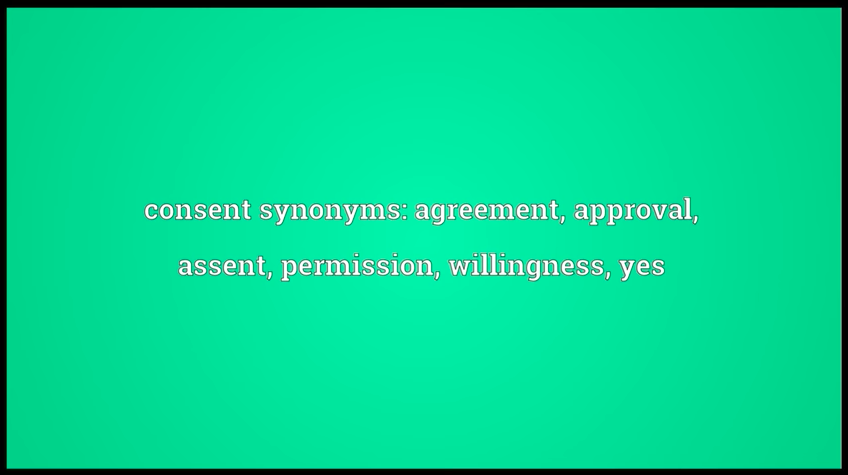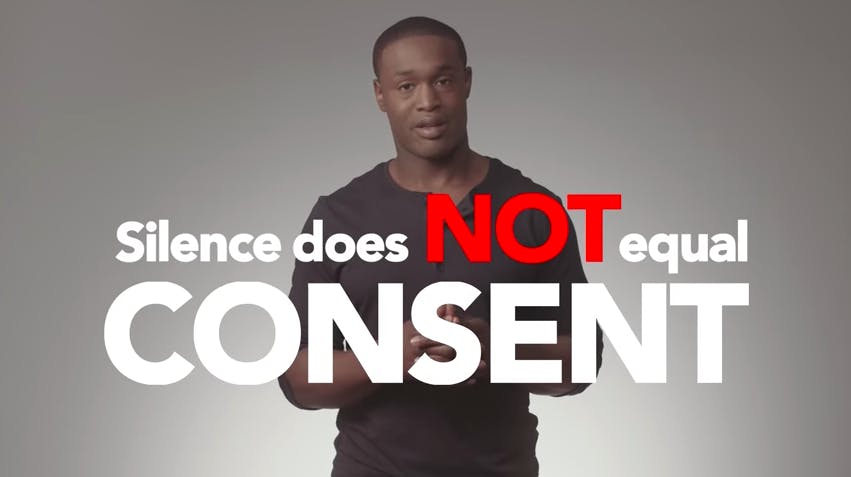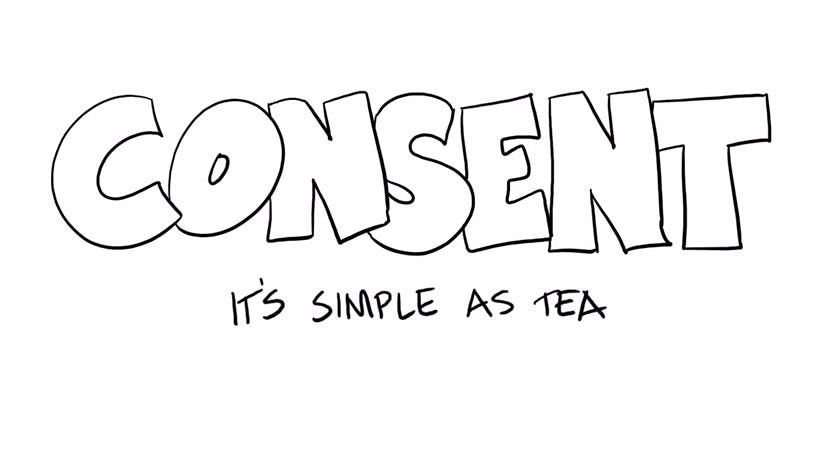Consent: one little word that can stir up a lot of confusion, controversy, and misinformation. If you’re curious about what constitutes consent, how to get it, or how to give it, read on. Because consent doesn’t take the “spontaneity” out of sex—it should be the reason you’re having sex.
Here’s your guide to understanding what consent is, what sexual consent really looks like, how to ask for consent, and how to give consent.
What is consent?
Consent is a clearly expressed agreement to participate in sexual activity. Consent must be given without pressure or coercion. In a consensual sexual encounter, all parties express their approval freely, without fear of repercussions.
Does consent have to be verbal?
Verbal consent is ideal because it allows both parties to state their wants clearly, and makes it easy to ask questions and clarify if needed. The problem with nonverbal consent is that it’s not always clear. People have different understandings of gestures, “vibes,” and nonverbal cues, which leaves a lot of room for ambiguity and misunderstanding.
The other problem with nonverbal consent is that we live in a rape culture. Rape culture muddies the waters of nonverbal consent because it fosters a lot of sexist, dangerous assumptions meant to undermine women’s autonomy.
For example, rape culture will tell you that a woman wearing a sexy outfit means she is not only consenting to sex, but she is actively “asking for” sexual harassment and even rape. This is not true, but these beliefs and ideas might subconsciously inform our interpretations of someone’s nonverbal cues (including their outfit) as a signal of consent.
This is why clear consent is so important.
READ MORE:
- A beginner’s guide to sexting
- 15 facts you should probably know about revenge porn
- The dirty, complex, empowering history of the word ‘queer’
- What it means to be transgender
Does clothing ever equal consent?
Nope. What someone is wearing has nothing to do with their consent to sexual activity.
Even if someone’s dressed really sexy?
Still no. No matter someone’s outfit, their reputation, or your relationship with them—even if you’re in a serious, monogamous relationship—clear and enthusiastic consent to sexual activity is still a requirement.

What does getting consent sound like?
Getting consent means making sure you and your partner are on the same page. The best practice here is to be direct and ask questions clearly, even if it doesn’t feel “cool” at the time. Here are a few ways to do that:
“Do you like that?”
“Do you want me to ____?”
“Is this OK?”
“Are you open to that?”
“Does that feel good?”
“I’d like to do _____. Do you?”
“What do you want to do next?”
What does giving consent sound like?
Giving consent means making it clear that you are freely agreeing to the sexual activity. Here are a few ways to do that:
“Yes!”
“I like that.”
“Let’s keep going.”
“Let’s try that.”
“I’m open to that.”
Alternatively, there are many ways to say no. Planned Parenthood offers some great examples here, including:
“I don’t like that.”
“I’m not ready to do that.”
“Can we do this instead?”
And always, always remember that a simple “stop” is sufficient.
Can you give consent when you’re drunk or high?
This is where things can get complicated. The legal definition of consent in most states says that if someone is “incapacitated” by drugs or alcohol, they cannot consent. If someone is passed out, blacking out, or severely inebriated, they obviously cannot consent to sexual activity.
When alcohol and drugs are part of the equation, err on the side of caution, and increase the level of communication. Make sure consent is extra clear. If there’s any question, ask. If the answer isn’t clear and enthusiastic, stop.
Someone must be able to give their consent freely and clearly, and if they can’t do that due to drugs or alcohol consumption, then it is not OK to make assumptions or coerce them into any kind of sexual encounter.
Here’s some more information about alcohol and consent.

READ MORE:
- Breaking down the difference between gender identity and sex
- 5 dating apps for queer women without any of the bulls**t
- The financial costs of an uninsured abortion
- Double your pleasure with these sex toys for couples
Is it OK for someone to change their mind once they’ve consented to sex?
It is absolutely totally 100 percent OK. People are allowed to change their minds at any point, for any reason, during a sexual encounter.
Even if you’re making out with someone naked, consent must be given to move on to another sexual activity. And if you don’t want to do anything more than a naked makeout session, that is totally fine. Consent is also reversible: If you initially consented to a sexual activity but start feeling uncomfortable, you get to say, “stop” or “I changed my mind” or “I’m feeling uncomfortable” and your partner must respect that.
Whether you’re having sex with your best friend, a random stranger, or spouse, you are allowed to put the brakes on it and say, “I’m not feeling it, let’s stop.” Consent applies to all sexual relationships, regardless of parameters, love, and labels.
Consent is all about checking in and making sure everyone involved is still feeling good about the sexual activity. As a Blue Seat Studios explained brilliantly in an illustrated video that went viral back in 2015, “If you can understand how completely ludicrous it is to force people to have tea when they don’t want tea, and you’re able to understand when people don’t want tea, then how hard is it to understand when it comes to sex?”
Does consent kill the mood?
Consent often gets played up as a super complicated, totally unsexy legal negotiation. If consent required a pause during foreplay to draw up a contract and call in a notary, then, yes, it might ruin the mood.
Luckily, consent doesn’t require all that. It’s really just an enthusiastic “Yes.”
Consent is about clearly communicating. And you know what makes sex really great? Clear communication. Playing a guessing game about what your partner wants or likes is a surefire way to have really bad sex. Communicating with your partner about wants, desires, and sensations in the moment will improve your sexual experience and ensure consent from both parties.

Consent can be a very natural part of a sexual encounter. Asking, “Is this OK?” at different stages of sexual activity, checking in with your partner to see if they’re feeling good, and asking what they want to do next are tips that are just as likely to appear in a “How to Have Good Sex” article as a “How to Get and Give Consent” article. The two are not mutually exclusive. In fact, they’re complementary.
The bottom line: If both parties are communicating openly and respecting each other’s desires, consent isn’t complicated at all.
If you are a victim of sexual assault or want more information on sexual assault, contact the Rape, Abuse & Incest National Network at 1-800-656-HOPE (4673).
Editor’s note: This article is regularly updated for relevance.






